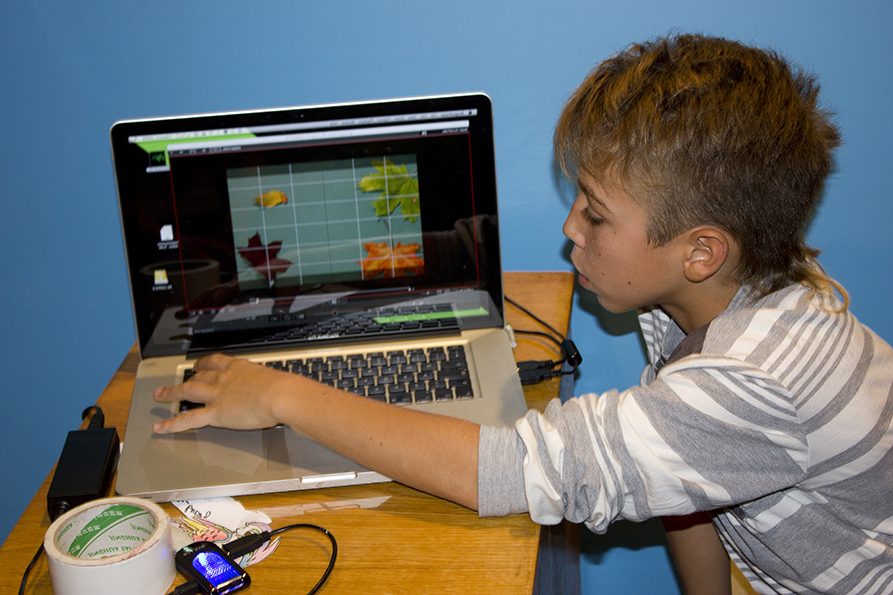As young people move from one hot app to the next, Koen Leurs explains social media practices among working and (upper) middle class youth in London and finds significant differences in relation to family contexts. Koen is a researcher in the Department of Media and Communications at the LSE. He has a background in gender studies and currently seeks to understand how young Londoners engage with cultural diversity using social media such as Facebook, Twitter and YouTube.
For young people in London, life is characterised by movement – across and between on- and offline ‘platforms’, across the city, waiting at bus stops, checking phones, communicating with friends and family who live both nearby and/or across the globe. For these urban youth, digital technology provides an opportunity to imagine themselves as part of a ‘community’ of fellow users, and to distinguish themselves from others. Shaped by their specific age, social class, urban location or ethnicity, these ‘digital imaginaries’ reveal how young people achieve independence online as they work out their relations with their parents and their peers.
In my research I interviewed in-depth 84 young people aged 12-21 living in the London Boroughs of Haringey, Hammersmith & Fulham and Kensington & Chelsea. These reflect three different urban environments – working, middle and upper (middle) class. All of the young people participating in the study owned smartphones and used a range of social media applications, reflecting access and user patterns among children in the European Union.
The importance of digital imaginaries – whether self-defined or in response to corporate ‘brand identities’ – emerged across my interviews. For example, 21-year-old Keith¹ described why young people prefer certain social media platforms: “… with my generation, it’s like everybody wants to be on the hottest thing, and when Facebook came out, you started to see fewer and fewer users on MySpace and everyone is on Facebook. It’s like, now, no one is really on Facebook, they are more on Twitter.” Because young people constantly move to the next ‘hottest thing’, most parents don’t think new technologies make ‘parenting any easier’, as a recent national survey of American parents reports.
Working-class youth fear their parents will catch up
The young people I spoke with from working-class backgrounds often noted that their parents did not use computers for work, but like themselves, used digital media mostly for entertainment and for communication. A shared preference for new devices and platforms brought children closer to their parents, as a recent post on this blog argued. Just before our interview, 17-year-old David had got a tablet and described how he felt “so modernised”. He explained how his mum was also interested in new technologies such as smartphones, as she wanted to “keep up with it”. His approving description of his mother who learned to listen to music using her smartphone is telling: “I see her sometimes on the bus, and she’ll listen on the headphones and I think it makes her feel more connected to more modern, like, as the times as they are moving along.” However, they were often quick to add how their parents differed from them. For example, 18-year-old Nicole explained: “I’m way more advanced. Even though I deactivated Facebook, I still have to help my mum using Facebook, which is quite hilarious.”
 Credit: Kat N.L.M., CC BY-NC 2.0
Credit: Kat N.L.M., CC BY-NC 2.0
Perhaps in order to safeguard their say over their own sphere of communication, young people often juxtaposed their image of themselves with their parents who were somehow less or differently modern. For example, 17-year-old Bob described how his father had bought a smartphone, but added, “… he doesn’t use it to the full potential. He’s got the technology, but he doesn’t understand it, in the sense, he likes to keep up-to-date to say that he is like cool. That he is down with the youth, or whatever.” These narratives hint at a fear that parents will catch up and spoil the social media applications that the young people perceive as belonging to them. That’s why 16-year-old Eleanor describes how young people move platforms to stay ahead of their parents – “… it’s kind of like, whenever parents go on Facebook, everyone from my generation just switches over to Twitter or something.” Thus, while young people from working-class families appreciate new technologies as a way to re-connect with their parents, they also seek to maintain a digital advantage, to make sure that they are the ones to decide on which terms their relationship develops.
(Upper) middle-class youth: entertainment versus work
In contrast with the young people from working-class families, children in (upper) middle-class families were exposed to digital technologies from a very young age. Sixteen-year old Peter stated, “I think, sort of growing up, there’s always been a computer in the house that I’ve been able to use. My dad…. He’s always sort of shown us how things work…. I don’t think I would have done computing GCSE without seeing my dad’s work and how it can actually be very useful in the world.”
Young people added that they use digital technologies more for entertainment and socialising, whereas their parents mainly use email, Twitter and make calls for professional work purposes. Twelve-year-old Rose noted that, “… normally my mum just uses the computer, her laptop, all the time for work.” Her mum agreed and added, “You have more fun on it, don’t you?” In these (upper) middle-class families, the young people maintained a position of autonomy, as their parents trusted and encouraged their digital creativity and development. The parents often celebrated these digital opportunities, perhaps to justify their being unable to oversee their children’s social media practices, due to their professional obligations. As they sat behind screens all day at work, they felt little appetite to go online again at night or at the weekends to monitor their children. For example, 15-year-old Katie described this as follows: “My dad has Facebook and I am friends with him … but he doesn’t really bother to use it. He is not really concerned.” Fifteen-year-old Harry similarly spoke about how his parents trust him to spend his free time on social media and playing video games wisely – “… just like an hour or two … they’ve given me the decision to make that, and whether it’s a silly idea to do that is down to me.”
Implications for parenting
The concept of digital imaginaries explains why young people flock to different online platforms at different moments. Parents face various struggles in keeping up with the latest social media trends, because the young people are continually searching for autonomy. Although I want to avoid assuming a causal relationship between young people’s social class positions and their digital imaginaries, there are noticeable differences in how those from working-class and (upper) middle-class families distinguished themselves from their parents. Young Londoners from working-class families sought to be more modern and advanced than their parents. In (upper) middle-class families recognising a digital skillset and the boundaries between professional and entertainment use allowed the young people to remain in charge of their own platforms.
Empowering themselves and their children, parents should prepare their children for a digital age by allowing them a degree of autonomy to demonstrate they can manage their devices and social media profiles. However, parents should not shy away from their children’s profiles, to make sure they observe the same rules and principles that apply offline, and know where to find help if needed. This way, children can develop a healthy digital imaginary, while remaining aware of both the problems and potentials of social media.
NOTES
¹ Names have been changed to protect the identity of individuals.






